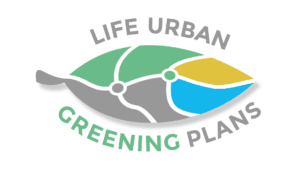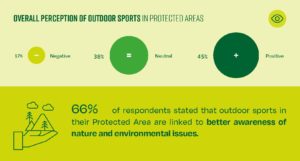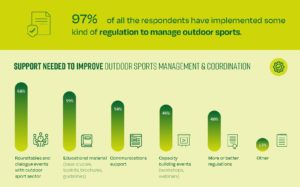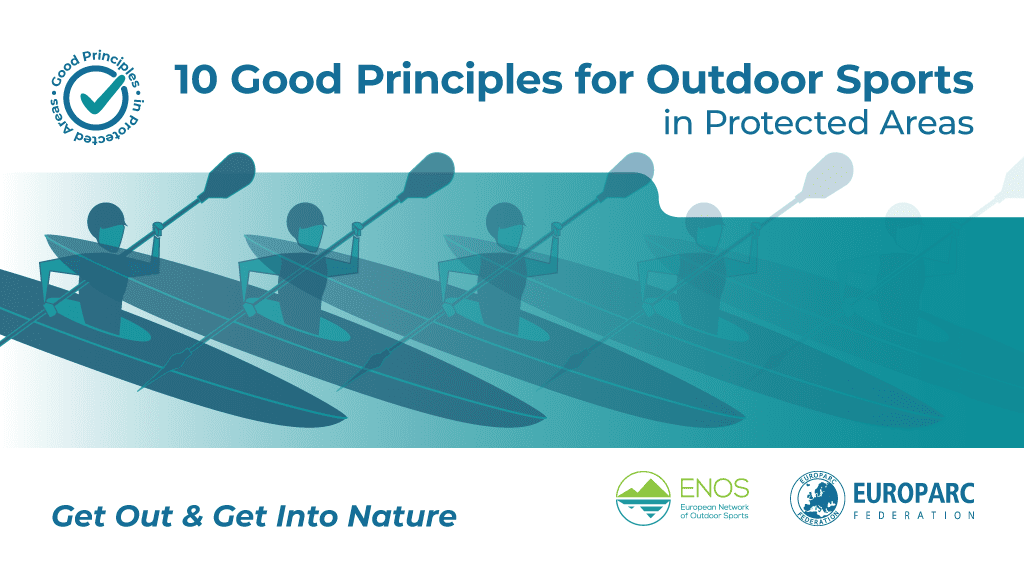The time for Urban Forestry is now – Podcast with Cecil Konijnendijk
Urban Forestry is an effective way to help cities adapt to climate change AND battle biodiversity loss. To learn more about this Nature-based Solution, we spoke to Cecil Konijnendijk, widely considered as one of the world’s leading urban forestry experts, and creator of the 3-30-300 rule for cities.
What is 3-30-300?
In 2021 Cecil first wrote about the “3-30-300 rule” and since then it has gained a lot of traction. The rule is a guide for policy makers and city planners that want to green their cities, with the idea of promoting public health and helping cities adapt to climate change. People should be able to see 3 trees from their window, have a canopy cover of 30% in their neighbourhood and be no more than 300 meters from a public green space. Multiple organisations and cities worldwide have already started implementing it.
We need to rethink how we develop our cities.
said Cecil during this podcast. He suggest that it’s time we put nature and trees up front, and have them provide a framework for urban development. During the podcast, we also spoke about what cities need to consider when planing trees, the importance of good communication within nature conservation and how Periurban Parks can help connect those living in cities to nature.
Why do we need urban greening?

Logo – LIFE UrbanGreeningPlans
Nature and biodiversity is facing immense pressure. That is why the EU Biodiversity Strategy 2030 calls upon cities with over 20.000 inhabitants to create Urban Greening Plans. These plans aim to bring nature back into cities to support biodiversity and mitigate climate change. To help cities achieve this ambitious goal, the European Commission will create a EU Urban Greening Platform, under a new ‘Green City Accord’ with cities and mayors. This is the framework of the new LIFE UrbanGreeningPlans project, of which EUROPARC is happy to be a partner. The project works on different greening measures for large metropolitan areas. All the info collected will be feed into a special Knowledge Hub on Urban Greening.
Who is Cecil Konijnendijk?

Cecil Konijnendijk
Cecil has over 25 years of experience studying, teaching, and advising on aspects of urban forestry and nature-based solutions. He is widely considered as one of the world’s leading urban forestry experts, and his work has been featured by leading media outlets such as CNBC and in international documentary films. A Dutch national, he has lived and worked in Europe, Asia, and North America. Since 2016 he has been a professor of urban forestry at the University of British Columbia. Cecil helped found the leading academic journal Urban Forestry & Urban Greening, and edited seminal textbooks such as The Routledge Handbook of Urban Forestry. He is currently Editor-in-chief of Arboriculture and Urban Forestry, the scientific journal of the International Society of Arboriculture. Cecil is passionate about using trees and nature to develop better cities, and always stresses the importance of building meaningful relationships between people and places. He has advised international organisations such as FAO, as well as national and local governments in more than 30 countries. He is also one of the Directors at the Nature Based Solutions Institute. You can follow him on LikedIn and Twitter.
The podcast is now available on Anchor, Spotify and almost all mainstream podcast platforms, or you can listen to it right here on our website:
We’d like to thank Cecil for taking the time to do this interview.
10 reasons why you should register NOW to the EUROPARC Conference
Just 3 weeks until the EUROPARC Conference 2022 in Austria. Here are 10 reasons why you should join us from the 2nd to the 6th of May in Neusiedler See – Seewinkel National Park!
1) Improve your communication skills
Your Protected Area is your speciality, but can you effectively communicate what you do? This Conference will help you improve your skills and return to your Park with fresh ideas. Let’s put the great work of Europe’s Protected Areas on the map!
2) Get together
After two years of connecting with people online – it’s time to get together face to face again to learn, exchange experiences, and celebrate our work. Be sure to join other EUROPARC members from all over Europe for our “World Cafe” on Tuesday morning to kickstart your Conference experience!
3) Present your work
Want to show your peers what you’ve been working on? Then sign up for the Marketplace or Speakers’ Corner! These two events will allow you to present your work, project, or idea. You can sign up for either of these during registration.
4) Be inspired by nature
We have created 16 field trips spread between Austria and Hungary, offering you a diverse educational experience in different habitats and regions. You can cross the border to Hungary, go canoeing on Lake Neusiedl, or simply enjoy the landscape while learning from other Nature Professionals on the ground.
5) To profit of our early bird rates!
This is your last chance! Register NOW, because our early bird rates are ending on the 14th of April. Sign up until then to enjoy a discount.
6) Question your mindset
Together with E.C.O. we have prepared 20 Mind Factories designed to prompt ideas and inspire creative thinking in an interactive environment. On top of that, four keynote speakers will help you bring your Communication to the 21st century!
7) Experience a green event
This conference has received the Austrian’s environmental label for Green Meetings and Green Events. This means that shuttle buses have been made available to pick up attendees from airports, a waste concept is in place, local products are used wherever possible and much, much more.
8) Enjoy spectacular birdwatching
Undeniably, the best months to visit the National Park are April and May. Between inspiring sessions, grab your binoculars and try to spot some herons or a hoopoe!
9) Learn about Austrian and Hungarian culture
Apart from breathtaking natural areas, the Field Trips also visit beautiful heritage sites like the Esterházy summer castle or vineyards. Additionally, the evening programme will include different cultural elements. Expand your (cultural) horizon during our Conference!
10) Have fun
One of EUROPARC’s core values has always been to create enjoyable events and opportunities. This Conference will be no exception and we look forward to welcoming you.
You can find many more reasons to join + the entire programme here. Did you know? Accommodation is available on site and will help provide a stress-free Conference experience!
War is an Environmental Issue
Photo by Tina Hartung on Unsplash
This article was written by Adrian Risley. He has 35 years experience working in nature conservation, in the UK and in Europe, with governmental bodies and in the non-governmental sector. Adrian is supporting EUROPARC in following the developments in Ukraine and potential opportunities for the EUROPARC network to assist.
As Russia’s war in Ukraine continues, few of us can fail to be affected by the horrors which are gradually unfolding. The hideous practice of bombing of open cities, the restrictions on the provision of humanitarian aid and, most recently, as Ukrainian forces retake parts of formerly Russian-occupied areas, direct evidence of war crimes, of the murder of civilians in the most horrific of circumstances. As the war appears to be entering a new phase, with Russia’s military apparently focussing on eastern Ukraine, the worst may yet be ahead. Truth is always the first casualty of war, and there are some who might dismiss these reports as biased propaganda. Time will tell, but there can be little doubt that the 4 million refugees who have now left Ukraine, are fleeing for their lives, and those who stay, even if far from the front lines, risk death, injury and trauma.
In the face of these horrors, it may seem trivial to talk about nature, or the environment, and in EUROPARC we have considered this dilemma. We have been in contact with our friends and colleagues in Ukraine, and asked them what they need. Two things are clear. Firstly, there is an immediate need to help people from National Parks relocate to other countries. Ukrainian workers and their families have found refuge with colleagues in Poland, Austria, Germany and Romania.
There is a superb effort underway by the National Parks family across Europe to coordinate the housing of refugees.
Secondly, our Ukrainian colleagues have asked for help with the information war, for us in the conservation sector to condemn Russia’s invasion, and to exclude Russia from their organisations. Yet this poses further dilemmas for conservation organisations, some of which have important projects in Russia, and who have spent decades building positive working relationships with authorities and organisations there. Can we afford to jeopardise this progress, for what some might dismiss as virtue signalling?
At EUROPARC, we have been very clear about this. We issued a statement just four days after the war began, denouncing and condemning the invasion, drawing the link between the impact of war on our ability “… to look after our shared European nature, but also to support those who live and work in and for our Protected Areas.” Acts of war “destroy the fundamentals of society…the building blocks upon which we build our common future, where nature and Protected Areas are safe places and the life support system of our planet.”
Our Ukrainian colleagues are seeking to join our EUROPARC community. They have a great network of Protected Areas and hold much of Europe’s valuable biodiversity. Indeed plans to join EUROPARC were already in place prior to the war commencing. EUROPARC members have since offered to support the fees of Ukrainian Protected Areas to join us and we will ensure our Ukrainian friends can join the EUROPARC family when peace returns.
Birdlife International also issued a powerful statement, which condemns not just the war in Ukraine, but the regime in Russia which has “…all but liquidated civil society and has made unprecedented investments in undermining truth and people’s trust in facts and institutions.” In addressing the ecological crisis facing us our efforts depend on “…a healthy civil society… NGOs, free media, accountable politicians, scientists that can speak openly.” Other organisations, such as the IUCN, Flora and Fauna International and Rewilding Europe have also issued statements, which do not go as far as condemning Russia explicitly, but express degrees of concern about the war, the impact on the people of Ukraine, and our collective ability (to quote from IUCN) of “…working together for a just world that values and conserves nature.”
Perhaps the largest environmental non-government organisation currently working in Russia is WWF-International, who released a statement on the war in Ukraine on the 15 of March, observing that “the catastrophic humanitarian crisis is deepening rapidly and an environmental crisis looms larger with every day that the conflict continues”. The statement does not mention Russia explicitly, but it is nevertheless a powerful declaration, expressing how “WWF is appalled by the escalating war in Ukraine…”, and condemning what it calls the “…alarming measures, extreme violence and destruction against civilians in Ukraine”. WWF is involved in many vital projects in Russia, including the species recovery of European bison and Amur tiger, expanding the cover of Protected Areas, and strengthening Russia’s compliance with international environmental agreements. Just as the strength of the conservation movement lies in its diversity, perhaps too we can recognise the strength of diverse but effective responses to the war in Ukraine.
At EUROPARC, we are in no doubt that war is an environmental issue.
It has many impacts, some directly on Protected Areas in Ukraine. Talks are currently underway in Geneva to make progress on global biodiversity targets, and never before have these talks been so vital to the future of our planet. As Ukraine’s deputy ambassador, Oleksandre Kapustin, declared in Geneva, “Russia’s attack on Ukraine is also an attack on the environment“, drawing a response from the Russian delegation that this assertion was “false and irrelevant” to the work of the Convention on Biological Diversity. That statement from the Russian delegate is entirely wrong. War damages people and the planet.
As the British historian Max Hastings observed recently, all wars end in conversation, and we can all hope and pray that the conversation starts soon, and the killing will end. When the talking is done, whatever the borders and governance of Ukraine look like, our work will continue, working together for nature, our communities, and our planet, in Ukraine, in Russia, and across Europe. We cannot afford not to.
EUROPARC continues to support the Frankfurt Zoological Society‘s call for donations and we want to thank all that have already donated so far.
Perceptions of Outdoor Sports by Protected Areas Managers
The SEE Project aims to create a more sustainable approach to outdoor sports and recreation through education. Last year, through a European-wide survey, information was gathered on the perceptions of Outdoor Sports by Protected Area Managers. The results are available now.
EUROPARC wants to thank all our members that took the time to fill out this survey! The results will contribute to the preparation of a toolkit for outdoor sports trainers and educators. The toolkit will help effectively educate practitioners into more sustainable, respectful and enjoyable experience of being active in nature.
The “BeActive, BeOutdoors, BeResponsible” report provides an initial analysis of the data collected. There is also a summary available for different types of outdoor sports.

KEY FINDINGS: Perceptions about Outdoor Sports by Protected Areas Managers
- Most Protected Areas indicated selected hiking (88.3%), mountain biking (57.5%), cycling (53.2%), running/orienteering (50%) and horse riding (39,2%) as the top 5 most practised outdoor sports.
- The most consistent issues throughout the majority of habitats were perceived to be linked to hiking and were namely issues with unleashed dogs, and in mountain biking where conflicts with other users and practice in restricted areas were usually perceived as the most prominent issues.
- 70% of the respondents indicated that they monitor or estimate visitors numbers and 55% follow a visitor management plan but only 9% held the European Charter for Sustainable Tourism (ECST).
- 97% of all the respondents have implemented some kind of regulation to manage outdoor sports.
- Overall, 66% of respondents stated that outdoor sports in their Protected Area are linked to better awareness of nature and environmental issues, and 65% believe that their Protected Area is more valued by outdoor sports practitioners.

The survey was filled out by 94 Protected Areas from 24 countries. You can read a summary, the full report or a summary per outdoor sport category here:
The SEE project is an extensive collaboration with partners from across Europe. It has received funding from the ERASMUS+ Programme of the European Union.

Are you a practitioner of outdoor sports? Or a Protected Area that wants to raise awareness on proper behaviour? Then have a look at the 10 Good Principles for Outdoor Sports in Protected Areas that EUROPARC developed together with ENOS.

